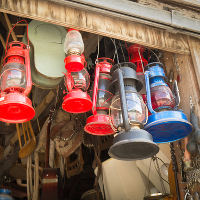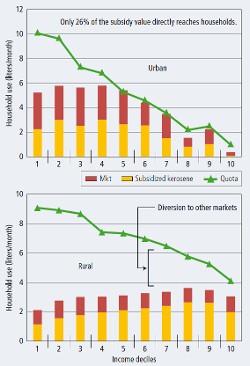29 July 2013
Kerosene subsidies benefit urban, but not rural, poor
Rao’s study explored how the kerosene subsidy performs in the Indian state of Maharashtra. In the western Indian state, 70 percent of households (68 million people) use kerosene. Of these, about 50 million users (91 percent of the rural population) live in rural areas and 18 million (49 percent of the urban population) in towns. The study showed that only 26 percent of the kerosene subsidy value in Maharashtra directly reaches households, the rest is diverted to distributors and retailers on the supply chain.
In rural areas, the research suggests that kerosene subsidies are of minimal financial value to poor households. However, in urban areas where kerosene is largely used for cooking rather than lighting, the subsidies may provide benefits of up to 5–10 percent of household expenditure among poorer households that lack affordable access to liquid petroleum gas (LPG) and biomass.
“By focusing on eliminating rural kerosene use for lighting, current policy analysis neglects important distributional benefits of the subsidy in urban areas,” Rao points out. “In the short term, the efficacy of the subsidy can be improved by redesigning households’ quota of subsidized kerosene to better reflect households’ needs—cooking in urban areas and lighting in rural areas. In short, analysis suggests that subsidies targeted only to kerosene-dependent urban areas would have a higher efficacy than broad-based subsidies.”

Subscribe to Options Magazine
More Information



